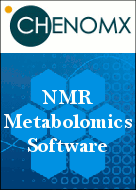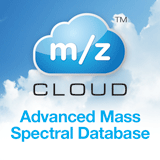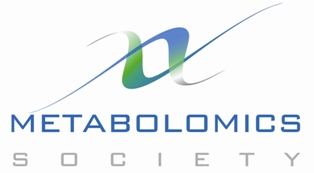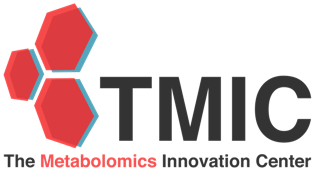8-9 Oct 2015
|
4th Foodomics International
Conference
Venue: Cesena, Italy
The Department of Agricultural and Food Sciences –
DISTAL, the Cesena Campus of the University of Bologna
& the Centre for Dissemination of the Results in
Agricultural and Food Researches – Ce.D.R.A. have the
pleasure to invite you at the fourth edition of the
International Conference "Foodomics: food to life" that
will be organized in Cesena (Italy), on October 8-9,
2015. The Conference will consist of invited lectures
organized in three sections, each one focusing on
specific foods: POLYPHENOL-RICH FOODS, PROTEINS-RICH
FOODS, & GRAINS, covering as much as possible, in a
two-days frame, the comprehensive Omic Sciences related
to food and to its interactions with human health.
For further details, visit www.foodomics.eu
|
20-21 Oct 2015
|
Waters Metabolomics Meeting 2015
Venue: Waters MS HQ, Wilmslow, UK
The meeting is focused on the application of
metabolomics workflows for omics research.
This meeting is relevant for scientists either already
using metabolomics techniques or interested in the
possibilities of metabolomics solutions for profiling
and characterisation of metabolites and metabolomes in
drug design and discovery, health and disease,
nutrition, plant biology and multi-omics systems
biology. Day two of this meeting is interactive and
includes workshops and laboratory based activities
designed to be informative on the latest developments in
metabolomics workflows.
To register, visit the website at http://www.waters.com/metabolomics2015
|
25-27 Oct 2015
|
Mayo Clinic Metabolomics Symposium
Venue: Marriott Hotel in Rochester, MN, USA
Mayo Clinic will host a Metabolomics Symposium from
October 25 to October 27, 2015, at the Marriott Hotel in
Rochester, MN. The event will feature presentations on
the practice and theory of metabolomics applications,
latest research in metabolomics, tours and networking
opportunities. The workshop is open to beginner and
established researchers, students, and postdoctoral
fellows.
Attendees are invited to display posters that will be
shown during the entire workshop. Awards for excellence
will be given to first place ($300), second place ($200)
and third place ($100). Vendor opportunities are
available and will be displayed during the entire
workshop as well.
Program: Download
PDF
For further details, visit https://matrix.secureserverdot.com/metabolomics_2015/home.htm.
|
27-30 Oct 2015
|
Metabolic Phenotyping in Disease
Diagnosis & Personalised Health Care
Venue: Imperial College London, South Kensington,
London, UK
This 4-day metabolic phenotyping short course is
designed to provide a fundamental education platform to
students, junior researchers and clinicians in the field
of metabolic profiling. The course includes an
introduction to metabolic phenotyping by leading experts
in the field, and explains the basic analytical
techniques commonly used in this area including nuclear
magnetic resonance spectroscopy and mass spectrometry.
Key steps involved in metabolic profiling will be
discussed in the following sessions including study
design, quality control strategies, data analysis and
interpretation, and metabolite identification.
Laboratory tour and hands-on data analysis will be
included to promote the learning effectiveness and
experience. The course will be finished with tips,
tricks and traps in metabolic profiling and up-to-date
applications of metabolic phenotyping in various
research areas, for example, clinical application,
cancer, metabolic diseases and infectious diseases. For
more course info, please visit our website http://www1.imperial.ac.uk/iiptc/
For course booking, please visit http://fomcoursebookings.ic.ac.uk/metabolic-phenotyping-10-2015.html
For enquiries, please contact Dr. Jia Li on +44 (0)20
75943230 email: jia.li105@imperial.ac.uk
|
3-6 Nov 2015
|
Data Analysis for Metabolic
Phenotyping
Venue: Imperial College London, South Kensington,
London, UK
This 3.5-day course aims to provide a comprehensive
overview of data analysis for metabolic phenotyping
studies, using data acquired from both mass spectrometry
and NMR spectroscopy.
It combines lectures and tutorial sessions to ensure a
thorough understanding of the theory and practical
applications.
- Pre-processing of data acquired via LC-MS and NMR.
- Basic chemometrics and unsupervised analysis
including PCA.
- Supervised analysis and advanced chemometrics -
OPLS and O2PLS
- Pathway analysis and statistical spectroscopy.
Online booking: https://fomcoursebookings.ic.ac.uk/data_metabolic_profiling_11_2015.html
Please visit our website at http://www1.imperial.ac.uk/iiptc/
or contact Dr Tim Ebbels (iptc@imperial.ac.uk)
for further information.
|
7-9 Dec 2015
|
MetaboMeeting 2015
Venue: Robinson College, Cambridge, UK
SELECTBIO are delighted to announce that we are once
again partnering with the Metabolic Profiling Forum
(MPF) to host the Metabomeeting 2015. The MPF will focus
on the conference program while SELECTBIO will take care
of logistics, promotion and exhibition/sponsorship
activities. We are expecting up to 270 attendees
offering a unique opportunity to network with key
researchers who are making innovative discoveries within
this field. We are also delighted to
announce that this year the registration price includes
a wonderful dinner reception which will be held on
Tuesday 8th December in the Magnificent Kings College
Dining Hall.
Agenda Topics
- Advancing Biological Knowledge from Single Cells
to Whole Organisms
- Applying Metabolomics to Nutritional Support and
Food Analysis
- Clinical Development in Metabolomics
- Enhancing Analytical Approaches in Metabolomics
- Modelling and Data Analysis
- New Developments in Plant Metabolomics
- Next Generation Metabolomics - Where will the
Revolution will Happen Next
- Structure and Reporting of Metabolomics: Data to
Knowledge
For further details, visit http://selectbiosciences.com/conferences/index.aspx?conf=Metabo2015
|
10-12 Dec 2015
|
3rd ICAN Conference Series on Omics
Venue: Saint James Albany Hotel Spa, Paris, France
On behalf of the steering committee, the Institute of
Cardiometabolism And Nutrition (ICAN) is delighted to
invite you to attend the 3rd ICAN CONFERENCE SERIES on
Omics which will take place in Paris, France, from
December 10-12, 2015.
ICAN Conference Series is an educational organization
directed and managed by ICAN and the scientific
community. Since its inception in 2012, ICAN organized
two ICAN conference in 2013 and 2014, and they both were
a real success!
ICAN conference Series convene dynamic, open,
peer-reviewed conferences on the exciting new frontiers
of life science. Whether you are a geneticist, an
immunologist or virtually any other type of life science
investigator, and whether you are from academia,
industry or the government/non-profit sector, we think
you will find the experience of attending a ICAN
Conference Series meeting valuable and memorable.
As in the previous editions, we aim to warrant high
quality scientific programme and facilitate interactions
especially between speakers and young investigators and
researchers. To that aim ICAN CONFERENCE SERIES
scientific board will select young researchers abstracts
eligible for Junior researchers registration rate and
limit the total number of participants. Moreover, this
year, certain young researchers will have the
opportunity to be one of the two chairs of each session.
For further details, visit http://www.ican-series.com/home.
|
14-19 Feb 2016
|
EMBO Practical Course on
Metabolomics Bioinformatics for Life Scientists
Venue: European Bioinformatics Institute, CB10 1SD,
United Kingdom (Google
Maps)
This course will provide an overview of key issues that
affect metabolomics studies, handling dataset and
procedures for the analysis of metabolomics data using
bioinformatics tools. It will be delivered using a
mixture of lectures, computer-based practical sessions
and interactive discussions. The course will provide a
platform for discussion of the key questions and
challenges in the field of metabolomics, from study
design to metabolite identification.
We will have lively and interactive discussion
throughout the course in addition to the hands-on data
analysis and processing. We encourage you to bring your
data, problems you might have with a particular data set
or study for group discussion. You will be asked
to present your work and participate in the discussions
from day one.
Who is this course aimed at: This course is
aimed at PhD students, post-docs and researchers with at
least two or three year’s experience in the field of
metabolomics who are seeking to improve their skills in
metabolomics data analysis.
Topics covered:
- Metabolomics study design, workflows and sources
of experimental error, difference between target and
un-target approaches.
- Metabolomics data processing tools: hands on open
source R based programs, XCMS, MetFrag, MetFusion,
rNMR, BATMAN
- Metabolomics data analysis: Using R Bioconductor,
understanding usage of univariate and multivariate
data analysis, data fusion concepts and data
clustering
- Metabolomics downstream analyses: KEGG, BioCyc,
MetExplore and Cytoscape for metabolic pathway and
network analysis with visualisation of differential
expression, understanding metabolomics flux
analysis.
- Metabolomics standards and databases: data
dissemination and deposition in EMBL-EBI
MetaboLights repository, collection and ever growing
metabolomics online resource, COSMOS data standards,
MSI
For further details, visit http://www.ebi.ac.uk/training/course/embo-practical-course-metabolomics-bioinformatics-life-scientists-0.
|
30 Mar to 1 Apr 2016
|
The Australian & New Zealand
Metabolomics Conference (ANZMET 2016)
Venue: La Trobe Institute for Molecular Science,
Melbourne, Victoria, Australia
The inaugural ANZMET conference is an exciting,
peer-driven event! It is designed to foster an
all-inclusive, engaging and rich interpersonal process
through a blend of traditional presentations, rapid-fire
postgraduate presentations, poster sessions, a
roundtable discussion, and topical peer sessions.
Its aim is to promote collaboration, innovation, and
community-building in metabolomics across private and
government sectors by open engagement of all researchers
and institutions throughout Australia and New Zealand.
The conference is actively supported by the Australia
& New Zealand Metabolomics Network (ANZMN), in
conjunction with the Metabolomics
Society and Metabolomics
Australia. Several keynote speakers will present
at the conference, including Professor David Wishart
amongst others.
For further details, visit http://www.anzmet.org/.
|
18 Apr to 26 May 2016
|
Copenhagen School of Chemometrics -
2016 (CSC-2016)
Venue: Copenhagen, Denmark
- CSC-2016 is FREE of charge for students at any
level.
- PhD students can obtain a maximum of 12 ECTS.
- We will count with highly recognized
chemometricians as lecturers/teachers: Frans van den
Berg, Riccardo Leardi, Thomas Skov, Tormod Næs,
Rasmus Bro, Age Smilde, Åsmund Rinnan, Evrim Acar,
Federico Marini and Jose M. Amigo.
- Bonus track: There is the possibility to attend
the “Introduction to Matlab for Multivariate Data
Analysis” PhD course (see flyer
for more information).
The maximum number of participants will be 20
participants per seminar. Therefore, it's strongly
recommend to contact Jose Amigo (jmar@food.ku.dk) as
soon as possible for keeping your seat!
How to enroll in the CSC-2016? Please, send an e-mail to
Jose Amigo (jmar@food.ku.dk)
with the information requested in this flyer.
|











